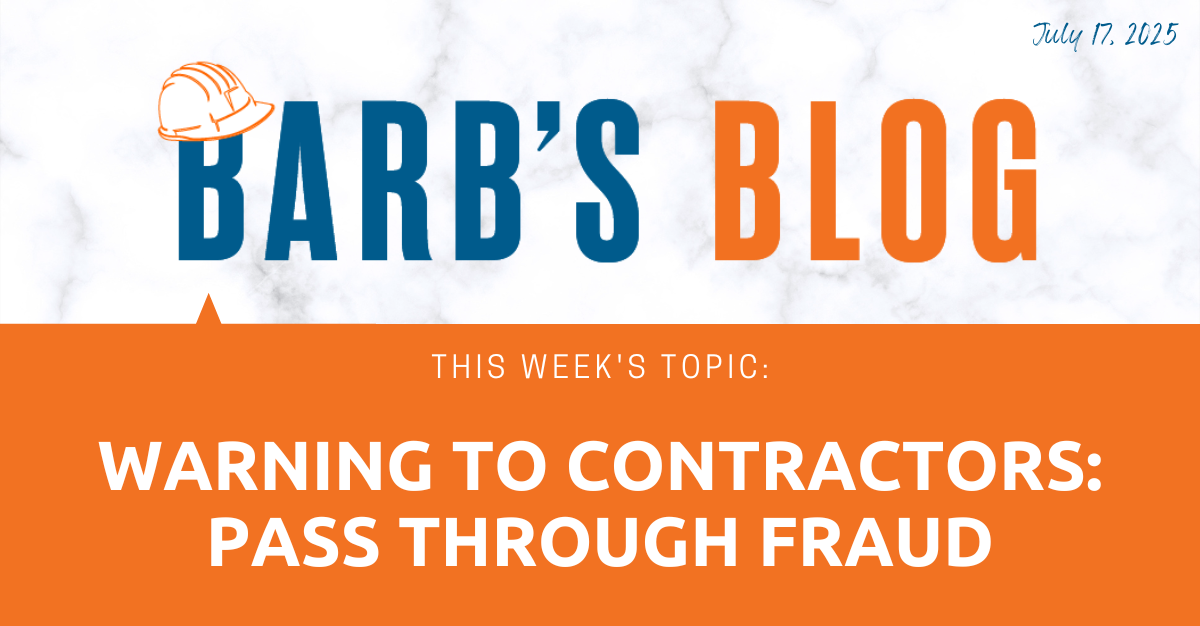
Supreme Court Ruling a Warning to Contractors on Pass Through Fraud
The Supreme Court heard and ruled in the case Kousisis v. United States. The case centered on a Pennsylvania Department of Transportation project with DBE goals. PennDOT contracted with Stamatios Kousisis and Alpha Painting and Construction for two projects with federal funds. The projects had 7% or less DBE goal on them. To achieve the goal, Kousisis and Alpha Painting subcontracted the supplies to Markias, Inc. a DBE. However, Markias served as a pass through where Kousisis and Alpha Painting (Petitioners) arranged to funnel checks and invoices from the actual suppliers through Markias and pay them a 2.5% fee. Upon discovering this arrangement, the federal government charged Petitioners with wire fraud and conspiracy to commit wire fraud in that they knowingly defrauded PennDOT to award the contract on false pretenses.
The evidence showed a clear example of a pass through. For those that are unsure of how that would work: Kousisis sent Markias a letter detailing the procedures for implementing the scheme. “The letter specified that [Alpha] would identify the actual suppliers for the products that it needed. [Alpha] would then negotiate prices and terms with those suppliers and create fraudulent purchase orders in Markias’ name.” And in their own internal correspondence during the scheme, petitioners repeatedly treated the outfit as a mere pass-through for ostensible DBE compliance. Kousisis instructed an associate to “start running purchases through Markias to meet the DBE goal. Kousisis instructed a project manager to continue to “run invoices thru Markias” instructing a supplier to remove Alpha’s name from invoice and substitute Markias’s name. Throughout the scheme, petitioners concealed “the fact that Markias was doing no work” by having the “true paint suppliers send their invoices to Markias, Markias then issued their own invoices—which added a 2.25% fee—to Alpha, and Alpha submit those marked up invoices to PennDOT.
Following a jury trial, petitioners were convicted on one count of conspiring to commit wire fraud, three counts of wire fraud, and seven counts of causing a false statement to a government agency where Kousisis was sentenced to 70 months of imprisonment, to be followed by three years of supervised release and Alpha Painting was sentenced to five years of probation, which was appealed and reversed and thus bringing the case to the Supreme Court for decision. The United States Supreme Court unanimously held that a defendant who induces a victim to enter a transaction under false pretenses may be convicted of federal fraud even if the defendant did not seek to cause the victim economic loss.
As someone that has been fighting against fronts and pass-throughs for over 15 years, I look at this as a win for legitimate certified business participation. I believe this ruling could give government entities a better case for suing contractors for fraud. I am hoping that it will deter contractors from this type of scheme. I can name many suppliers that with their name I hear “and everyone knows they are a pass through”. I can also tell stories of contractors asking businesses to function as a pass-through. I encourage contractors to refrain from knowingly taking part in this contracting practice. Note that the certified business is not the one that was penalized in the above referenced case. It was the contractor that was found guilty of fraud.
— B
